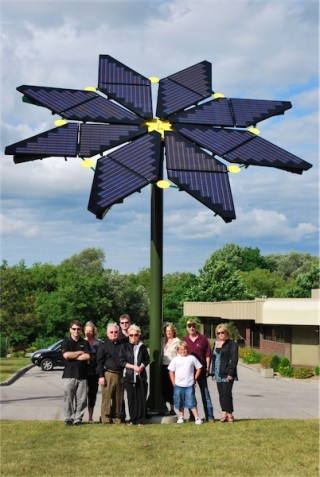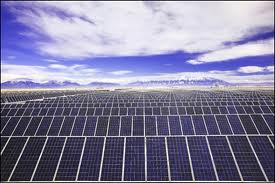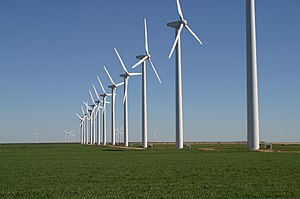Advocates fault PUC for turning a blind eye to industry as Texas falls behind
Solar energy backers rallied outside the Texas Public Utility Commission [last] week seeking enforcement of a seven-year-old law that would boost electric generation from geothermal, biomass and the state’s ample supply of sunshine.
Public comment [ended Friday]on proposed rulemaking at the PUC, which has been reluctant to embrace the non-wind portion of the so-called renewable portfolio standards passed by the Texas Legislature in 2005. With those standards calling for generation of about 500 megawatts of renewable power from non-wind sources by 2015 and 3,000 megawatts by 2025, the Clean Energy Works for Texas Campaign sent petitions to the PUC urging it to carry out the law’s provisions. The group estimates that more than 6,000 individuals across Texas and 50 businesses or organizations lent their signatures in support.
“Why aren’t we seeing the clean energy we’ve demanded from our legislators? Why aren’t we seeing the thousands of new green jobs, new energy businesses and new tax revenues for our underfunded schools?” asked activist Dave Cortez of the Texas BlueGreen Apollo Alliance. “Four words: The Texas Public Utility Commission – a government agency run by unelected commissioners who have the power to take state law and misinterpret it, sit on it, lambast it, everything but implement it and ultimately say, ‘No, sorry. We don’t like it.’”
The PUC’s stand, as articulated by Chairman Donna Nelson, stresses the fact that wind power’s success has eclipsed the minimum renewable standards set in the law many times over. And, she argues that the law’s instructions on non-wind energy are not mandatory, a point of contention with solar backers. Moreover, she has said propping up solar power would increase electric bills and that the commission is not in the business of favoring one type of energy generation over another.
Executives from two Austin-based solar companies who attended the rally said each had respectively grown from only two employees to at least 25. And, with the business climate unfriendly to solar in Texas, they said, both companies are making upcoming expansions in a state more hospitable to their interests.
“The bad news is we’re in the process of opening a second office, and the second office will be in California,” said Tim Padden, founder of Revolve Solar. “I would rather be in Dallas, San Antonio or Houston, but the reality is California has taken a stand to support the development of the solar industry seriously by setting statewide goals and local support for their solar companies. I want to see this happen here in my home state. These could be Texas jobs.”
Stan Pipkin of Lighthouse Solar, an Austin-based solar design integration firm said his own company has shown an almost identical job growth and will also be opening offices in California.
“I’m deeply concerned that Texas is not taking advantage of the energy resource we have in most abundance,” he said. “Texas is currently 10th in solar capacity. This is absolutely confounding given our solar resource, our electric demand and our shortage of reserve capacity. It just doesn’t make sense.”
By Polly Ross Hughes
Copyright September 14, 2012, Harvey Kronberg, www.texasenergyreport.com, All rights are reserved. Reposted by TexasVox.org with permission of the Texas Energy Report.













